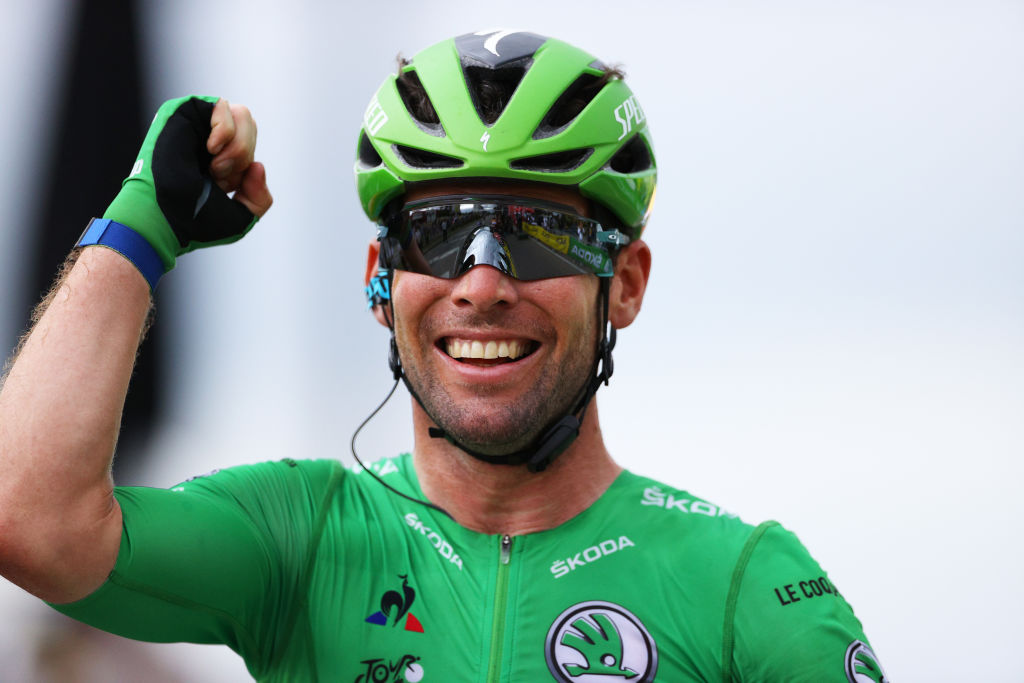Mark Cavendish confident about winning again in 2022
Manxman opens up about his problems and overcoming depression to The Big Issue

Mark Cavendish has said he is confident of winning again in 2022 despite his crash at the Ghent Six leaving him with fractured ribs and a punctured lung, and significantly delaying his winter training.
The 36-year-old Manxman has signed a new contract with QuickStep-AlphaVinyl and is keen to continue his success of 2021 when he won four stages at the Tour de France, took the green points jersey and equalled Eddy Merckx's stage win record. He overcame the Epstein-Barr virus, depression, and a slump in form before joining QuickStep but showed he is still fast and ambitious in sprint finishes.
His crash injuries mean Cavendish is currently limited to short indoor rides but he is upbeat about 2022 and still loves cycling.
“Obviously this isn’t ideal, but I still think I’m going to win next year,” he told The Big Issue during a long interview about his crash, his depression, and his return to success.
The Big Issue magazine works to help people struggling with poverty and ill health. It offers people the opportunity to earn a legitimate income through selling the magazine directly to the public.
“What I win, I don’t know, but I’m pretty confident, otherwise I’d have just stopped. It’d have been a good year to stop, to come back and just do it. But I know I’m still on an upward trajectory. And I still love it.”
Cavendish admitted his return to success has been extraordinary. A year ago he was in a very different position.
Get The Leadout Newsletter
The latest race content, interviews, features, reviews and expert buying guides, direct to your inbox!
“My hope was to be able to ride for this team, trying to scramble everything together. I wasn’t performing,” he recalled, also explaining why.
“From my perspective, I couldn’t perform properly. I had too many excuses. My bike didn’t fit me – that’s out of my control. A team that I don’t gel with – that’s part me, but it’s still an excuse. If I could come to this team and eliminate those excuses, it’s only down to me. And I knew if I could do what I can do, I knew I’d be successful.”
“I was surprised (to win),” he added. “But it wasn’t disbelief if that makes sense. I knew the work I’d put into it. Still, it hadn’t happened for so long the emotions were there.”
Cavendish suffered in silence as he tried to recover from the Epstein-Barr virus and during the tense final year at Dimension Data when he was not selected for the Tour de France.
He only revealed he had struggled with depression later, admitting he had not understood the impact mental problems can have. Now he is ready to speak openly about it, in the hope it can help other people.
“Do you want to know the biggest reason I talk about it? Because five years ago I was somebody who didn’t take it seriously,” Cavendish told The Big Issue, which has always worked to help people with mental health problems.
“I really just thought it was an excuse. I’m grateful now that I’ve got the platform to be able to talk personally about it. For me, talking with other people who suffered was the best way to deal with it. Because so many people don’t understand. So the more people talk about it, the bigger that network becomes.
“It’s such a strange thing. You can’t paint a picture of what mental health problems are. They manifest themselves in different ways in different people. And ultimately pooh-poohing the idea that it’s a serious illness, it doesn’t just not help people, it’s a detriment. It’s a massive detriment.
"And I think, especially in the last couple of years, so many people have been in a position that they’ve lost everything, they’ve suffered emotionally and developed mental health symptoms. We have to take it seriously and talk about it.”
Cavendish regrets not showing more empathy with people in the past. He now understands that people could be suffering in silence and so need support.
“I think Robin Williams said the best phrase, I’m paraphrasing: ‘people aren’t pretending to have mental health issues, people are pretending to be OK’. That sums it up pretty well,” he said, grateful to have support from his current team.
“I’m in a warped world, because it’s professional sport and cycling is quite an old-fashioned sport. It’s behind other sports in terms of that. But I have to say that there was the support I needed,” he said.
“The ironic thing is that when you’re suffering, you don’t search for help. From my experience, when I was ill, not having help, you take it as no one wants to help you. But you haven’t asked anybody. That’s how it goes through your mind. It doesn’t make any logical sense but you don’t think logically.”

Stephen is one of the most experienced member of the Cyclingnews team, having reported on professional cycling since 1994. He has been Head of News at Cyclingnews since 2022, before which he held the position of European editor since 2012 and previously worked for Reuters, Shift Active Media, and CyclingWeekly, among other publications.